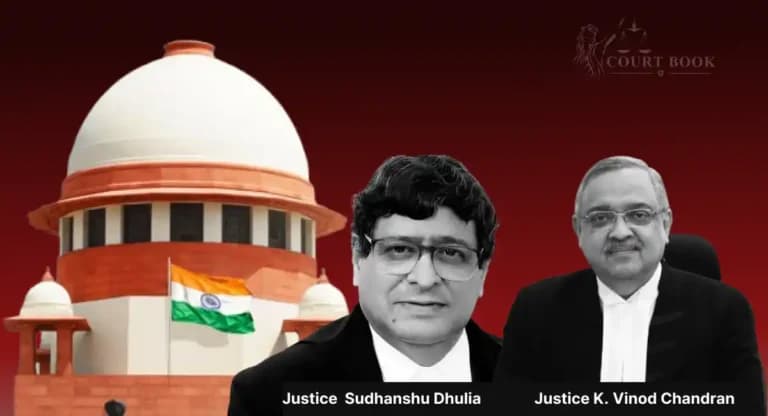The Supreme Court has clarified that while awarding compensation for functional disability, courts are not restricted to the schedule in the Employees’ Compensation Act, 1923. They can consider the actual impact of injuries on a person’s ability to earn and function in daily life.
This ruling came in the case of Kamal Dev Prasad v. Mahesh Forge (SLP (C) No. 4974 of 2022), where the Court addressed the compensation for an employee who lost significant parts of four fingers on his right hand while operating a forging machine in 2004.
The appellant was earning ₹2,500 per month when the accident happened. The machinery crushed his right hand late at night, leading to severe injuries: loss of one phalanx in the little finger, two phalanges in the ring finger, three in the middle finger, and two and a half in the index finger.
Read Also:- Delay Not A Ground To Quash FIR In Serious Offences, Says Supreme Court
Initially, the Commissioner assessed his disability as 100% and awarded compensation of ₹3,20,355, along with 12% interest from the accident date and a 50% penalty due to delayed payment by the employer.
However, the Bombay High Court reduced the disability percentage to just 34%, basing it solely on Schedule I of the Employees’ Compensation Act. The High Court argued that no medical board certificate was submitted and distinguished the case from motor vehicle accident claims.
The Supreme Court strongly disagreed.
“It is not as if there can never be a departure from the Schedule in deciding the functional disability.”
Justices Sudhanshu Dhulia and K. Vinod Chandran emphasized that compensation should reflect actual earning loss, not just be limited to a fixed schedule. The Court cited its previous decision in Oriental Insurance Co. Ltd. v. Mohd. Nasir, which held that both the Employees’ Compensation Act and the Motor Vehicles Act are welfare legislations meant to provide fair and timely relief. The Court further noted that these laws should be interpreted liberally.
“The statute only provides for specific losses. Where multiple injuries are suffered, simply adding scheduled percentages does not reflect true functional disability.”
In the present case, the Court noted that losing parts of four fingers of the dominant (right) hand, especially middle and index fingers, significantly reduced grip strength and usability. Even if not 100% disabled, the hand's functionality was seriously impaired.
“The appellant’s working hand has been seriously mutilated… it is difficult for the right hand to be used with the same grip as available prior to the accident.”
Taking this into account, the Supreme Court assessed the functional disability at 50%. It held that even without a medical certificate, the injury's impact was clear and significant.
Read Also:- Citizens Who Approach Police Station To Report Crime Entitled To Be Treated With Dignity : Supreme Court
The compensation was recalculated as follows:
“Loss assessed at ₹2,500 x 60% x 213.57 = ₹3,20,355. 50% of this comes to ₹1,60,177.5. With 12% interest and a 50% penalty of ₹80,088.75, the total amount payable is enhanced.”
If any amount directed by the High Court has already been paid, the balance must be paid with 12% interest and a 50% penalty from the accident date.
Case Details : KAMAL DEV PRASAD v. MAHESH FORGE | SPECIAL LEAVE PETITION (C) NO.4974 OF 2022















